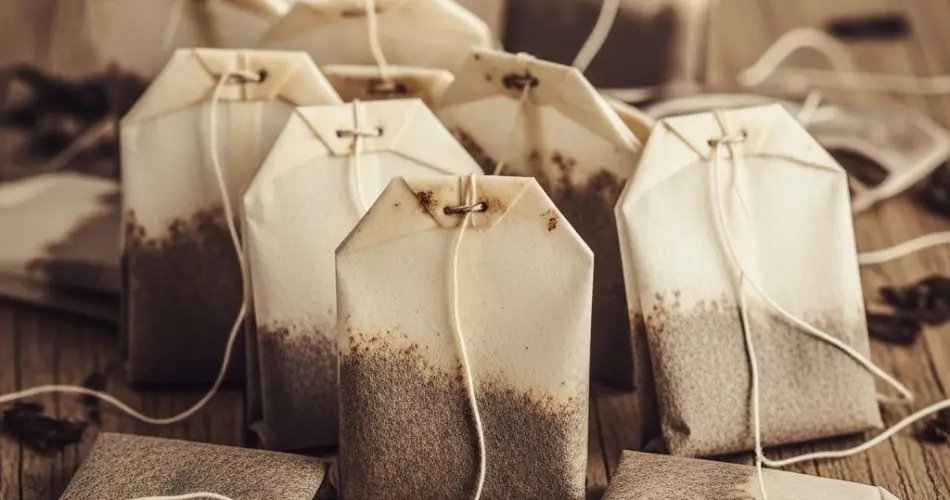Most people toss out their used tea bags without a second thought, unaware of the hidden value they hold—especially for gardeners. If you’re growing plants at home, whether in pots, balconies, or a backyard garden, used tea bags can be a powerful and completely natural way to nourish the soil, improve plant health, and reduce waste all at once.
Here’s how these small kitchen scraps can transform your garden and why you’ll never want to throw them away again.
Why Tea Bags Are Beneficial for Plants
Used tea bags are more than just waste—they’re packed with organic matter and trace nutrients that plants love. Depending on the type of tea, they can contain:
-
Nitrogen – essential for leafy growth
-
Potassium and phosphorus – for strong roots and flowering
-
Tannins – which have antifungal and pest-repelling properties
-
Beneficial acids – which can help lower soil pH slightly, aiding acid-loving plants
Beyond their nutrient content, tea bags improve soil texture and promote healthy microbial activity, which helps roots absorb nutrients more efficiently.
How to Use Used Tea Bags in the Garden
There are several effective and safe ways to repurpose your used tea bags for plant care. Here are the most popular methods:
1. Compost Booster
Toss your used tea bags directly into your compost bin or pile. They break down quickly and add organic nitrogen to the mix. Tea helps speed up decomposition and encourages beneficial bacterial growth.
Tip: Make sure the bags are made of natural fibers like paper or hemp. Some commercial brands use synthetic mesh, which won’t decompose properly. If you’re unsure, you can cut the bags open and compost only the tea leaves.
2. Fertilizer for Potted Plants
You can place a used tea bag in the bottom of a pot before adding soil. As the plant is watered, the tea bag slowly decomposes, releasing nutrients directly into the root zone.
This is particularly helpful for houseplants, herbs, and flowers grown in containers.
3. Direct Mulch for Acid-Loving Plants
Used tea bags can be used as a light mulch for acid-loving plants like:
-
Blueberries
-
Azaleas
-
Hydrangeas
-
Roses
-
Ferns
Just bury the tea bags shallowly around the plant base. They help retain moisture, deter some pests, and gradually enrich the soil.
4. Natural Pest Repellent
Tea’s scent and tannins can help deter insects like aphids, fungus gnats, and even slugs. Try these simple steps:
-
Let the tea bag dry after use
-
Tear it slightly open to expose the contents
-
Scatter it at the base of vulnerable plants
Repeat every few days for a protective barrier that’s completely natural.
5. Seed Starter Aid
Used tea bags can even serve as mini seed-starting pods. Here’s how:
-
Let the tea bag dry slightly after brewing
-
Cut a small slit on top
-
Tuck in a seed or two
-
Keep moist and place in a tray or small container
Once the seedling sprouts, you can transplant the whole tea bag directly into soil. It will decompose, feeding the young plant as it grows.
What Plants Benefit Most?
Virtually any plant can benefit from the gentle nutrients in tea leaves, but here are a few that respond particularly well:
-
Tomatoes
-
Basil and mint
-
Spinach and lettuce
-
Hydrangeas
-
Strawberries
-
Orchids (in moderation)
Avoid using tea bags on plants that prefer alkaline conditions, like lavender or succulents, unless you’re blending the tea into a larger compost mixture.
Additional Tips
-
Avoid flavored or sugary teas, as added oils or ingredients might attract pests or mold.
-
If using herbal teas (like chamomile or mint), know that these often contain compounds that can discourage fungal growth—great for plant health!
-
Don’t overdo it: like all natural additives, tea bags should be used in moderation to avoid altering soil balance too drastically.
A Zero-Waste, Plant-Friendly Habit
Recycling your used tea bags into the garden is a smart and sustainable practice. You reduce household waste, enrich your plants naturally, and support a healthier garden ecosystem. Whether you drink green tea, black tea, or herbal blends, your post-tea ritual can now include a green act of kindness for your plants.
So next time you enjoy a cup of tea, think twice before tossing the bag—your garden will thank you!



